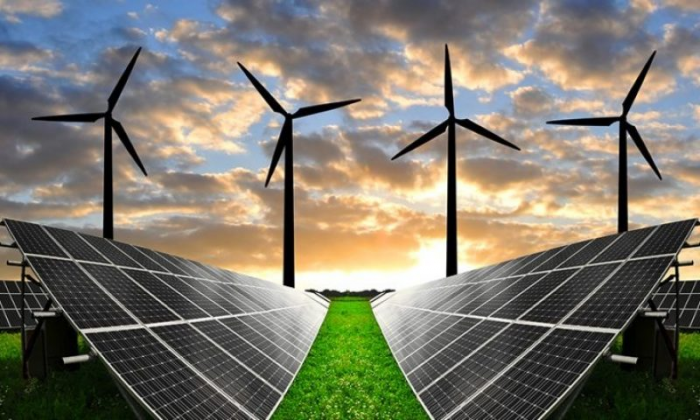Overview
Cyprus has a target to reduce greenhouse gas (GHG) emissions by 32% by 2030 compared to 2005, as per the EU directive 2023/857, which binds annual greenhouse gas emission reductions by Member States from 2021 to 2030. The EU has increased the renewable target, raising the share of RES in the EU gross final energy consumption from 32% to 42.5% by 2030. For Cyprus, this means that the new target of 31% has been raised from the previous goal of 23% by 2030.
Some national targets of Cyprus for RES are,
- Increase of RES share of 0.8% from 2021 until 2025 for the heating–cooling sector
- Increase of RES share of 1.1% from 2026 until 2030 for the heating–cooling sector
- Target for a 1.6% annual increase in the share of renewable energy use in industry
Cyprus supports decarbonisation actions through different financial support schemes, deploying RES projects for residential buildings, energy improvements for residential buildings, and energy improvements for SMEs.
Cyprus supports the deployment of RES, mainly photovoltaic (PV), with several schemes. The Support Schemes for RES and Energy Savings 2 operated by the RESEC Fund offer subsidies for the purchase and installation of rooftop PVs in the domestic sector which operate under a net-metering scheme (PV system up to 10.4 kW).
Apart from that, Cyprus encourages the installation of RES systems for own consumption by offering non-domestic customers the opportunity to connect a rooftop or ground-mounted PV system under a net metering scheme or net billing, depending on their needs. Rooftop PV installations under a net-billing scheme of up to 10 kW can be supported through a subsidy offered by the Energy Efficiency- Upgrading of Domestic Buildings grant scheme. Net Billing RES systems for commercial and industrial consumption are promoted without subsidy; however, some support schemes finance the installation of RES systems in combination with other energy efficiency actions.
Summary of support system
- Net Metering (Support Schemes for RES for residential and commercial buildings): The projects concern investments by individuals or entities to install photovoltaic (PV) systems up to 10.4 kW for buildings with 3-phase electricity installation and 4.16 kW for single phase electricity installations in buildings, connected to the grid for self-consumption needs using a net metering system. PV systems can be installed either on an existing building or on the land within the same or adjacent plots, as per legal requirements (R.A.A. 384/2022).
- Net Metering for Public Schools (Support Scheme for RES in Public Schools dated back to 2021): The Plan concerns exclusively investments for the installation of small PV systems of power from 5.2kW up to 20kW connected to the Low Voltage network of the EAC-supply, to cover own needs in public school buildings, with the application of the net metering system.
- Virtual Net Metering (Support Scheme for RES for Residential buildings): concerns the installation of photovoltaic systems connected to the distribution network, for self-consumption for residential units, agricultural properties/activities and wine-making enterprises, with the application of the virtual net metering system. The system is installed in a different building from the one that utilises the produced energy, following the same regulations and legal requirements.
- Net Billing (Support Scheme for RES for Residential and commercial/industrial buildings): refers to installations of RES systems on the premises of natural or legal persons (i.e. commercial, industrial units, houses, public buildings, camps, schools, agricultural and livestock units, fishing enterprises, etc.) with the aim of producing electricity for self-consumption. Net Billing for residential units is applicable in case a household receives a subsidy through energy efficiency – Upgrading a Domestic Building.
- Virtual Net Billing (Support Scheme for RES for Residential and commercial/industrial buildings): concerns the installation of photovoltaic (PV) systems connected to the distribution network, to meet the own needs of natural or legal persons and public/local authorities, with the application of the virtual net billing system. The system is installed in a different building from the one that utilises the produced energy, following the same regulations and legal requirements.
- Sources:
Electricity Support schemes through subsidies:
- Subsidy (scheme for the encouragement of the use of RES and Energy Savings in dwellings focusing on the installation of PV systems). This is strictly under the Net Metering schemes for residential buildings. There are three categories (a) general subsidy, (b) for vulnerable people, (c) PVs for All.
- Subsidy (Energy Efficiency- Upgrading of Domestic Buildings 2023): The grant scheme supports the purchase and installation of rooftop PV in the domestic sector to reach certain reduction in Primary energy consumption. All installed rooftop-ground fit PV installations under this subsidy will be connected under a net billing scheme
Competent authorities
- MECI
- RES and Energy Conservation (RESEC) Fund
- MinFin
- EAC
- CERA

